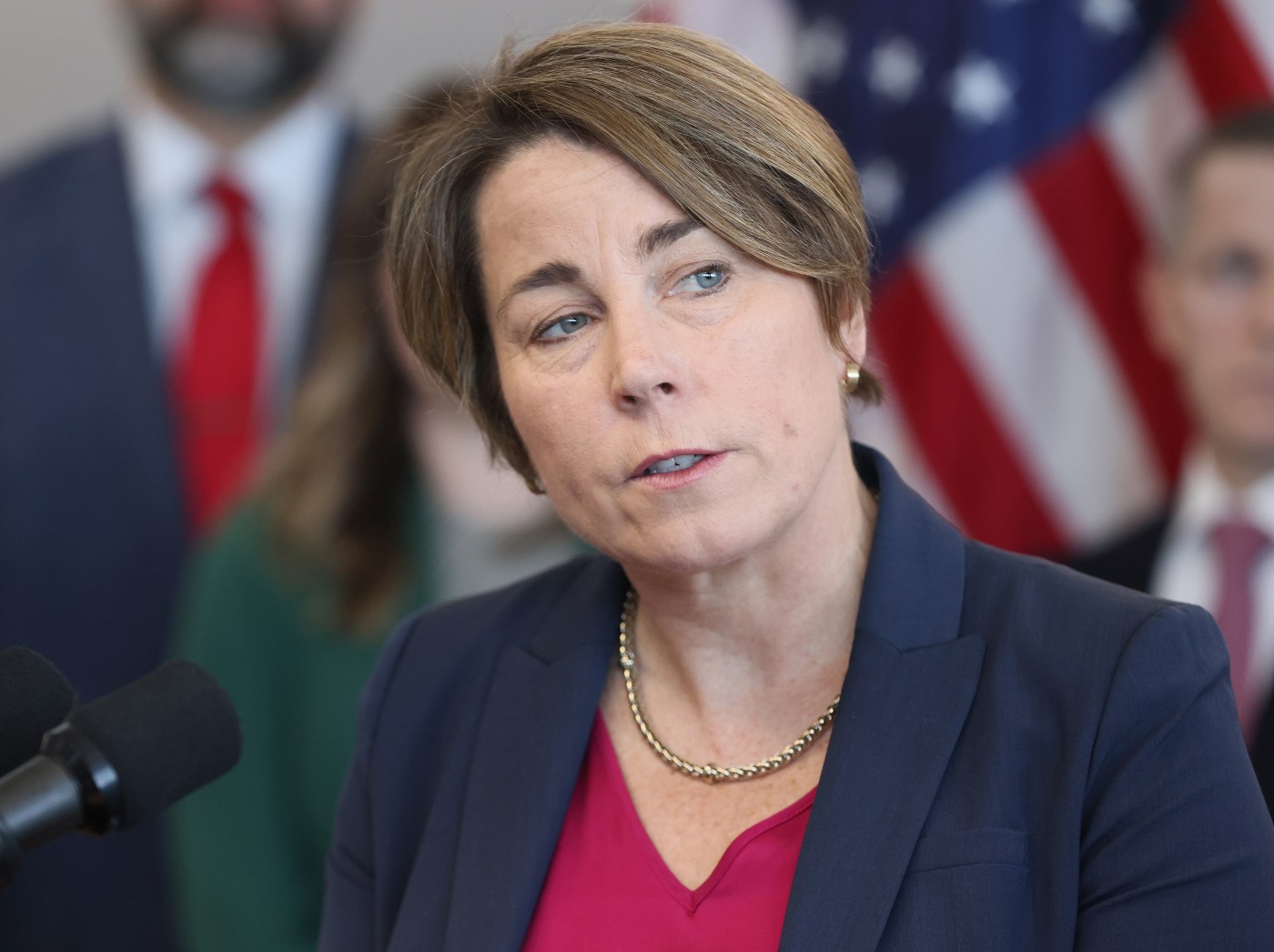
Stars could align on Beacon Hill for emergency shelter reforms in Massachusetts
Gov. Maura Healey said she is open to reforming the state-run shelter system in order to address capacity concerns amid an influx of migrants into Massachusetts, including by imposing “certain conditions or other things.”
The stars could be partially aligning on Beacon Hill for action on the emergency assistance shelters after months where the system has been maxed out at the 7,500 family limit Healey unilaterally imposed last year and no indication of aid coming from Washington any time soon.
After months of hammering congress for help, Healey said Massachusetts is left “to manage the situation” after a bipartisan immigration bill that would have directed millions to states with overburdened shelter systems was killed in the U.S. Senate.
“In order to address capacity concerns, we have to be open to reforms around how we’re handling the situation, and in particular, you know, how we’re handling migrants coming into the state and whether there needs to be, you know, certain conditions or other things imposed,” Healey told reporters Thursday. “That’s what I’m open to.”
Healey has previously broadcast a willingness to revisit time limits for families staying in shelters and said last month at a fiscal year 2025 budget briefing that her administration was undertaking an “analysis and effort” related to the system and “making certain reforms.”
But her comments Thursday land with more weight because they come a day after top House Democrats also expressed a desire to reform the way the emergency shelter system is managed and administered in the face of mounting bills and declining revenues.
House Speaker Ron Mariano said Democrats in the House are “talking about a lot of different options” when asked if he wanted to impose residency requirements or time limits.
House budget chief Rep. Aaron Michlewitz said the chamber does not want to rewrite the decades-old right-to-shelter law, which requires the state to provide temporary housing to families with children and pregnant women, including migrants.
“How we manage the (emergency assistance) program going forward, I think is up for discussion. To be able to manage it and make it sufficient and sustainable long-term with no help coming from Washington is certainly going to have to create some, we’re gonna have to look at some potential changes,” the North End Democrat said Wednesday.
House leaders have not yet put forward a specific proposal nor offered a concrete timeline for when the branch could take up reforms, though Michlewitz expressed a “hope” to get something done before they consider the fiscal year 2025 budget in April.
The House is considering a supplemental budget that taps $873 million in surplus dollars from the pandemic to plug a $224 million shelter budget gap this fiscal year and pay down costs in the next, when spending is expected to approach $1 billion. House lawmakers could turn to that as a vehicle for shelter reforms.
Healey also pointed to her administration’s work to speed up work permit approvals for newly-arrived migrants, which she says is a key way to move people out of shelter and into more permanent solutions that do not rely on taxpayer funded programs.
In a biweekly report released this week, the administration said 2,713 individuals who entered the emergency shelter system as migrants, refugees, or asylum seekers self-reported that they have a work authorization.
Those authorizations were largely a result of two weeks worth of clinics state officials and the Department of Homeland Security ran in November 2023. Healey aides also said they are working with local resettlement agencies to file additional work authorization applications for migrants staying in emergency shelters.
“We’re getting people plugged in with employers,” Healey said Thursday. “But it’s an incredibly frustrating situation. I talked to other governors who are fed up with Congress, who are fed up with federal inaction. And that bill that was on the table two weeks ago should have passed. It would have taken care of a lot of our issues.”
An 80-bed shelter is the next to open in Fort Point on Farnsworth Street. (Nancy Lane/Boston Herald)


